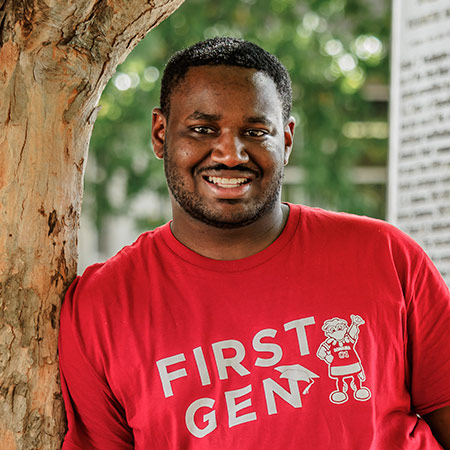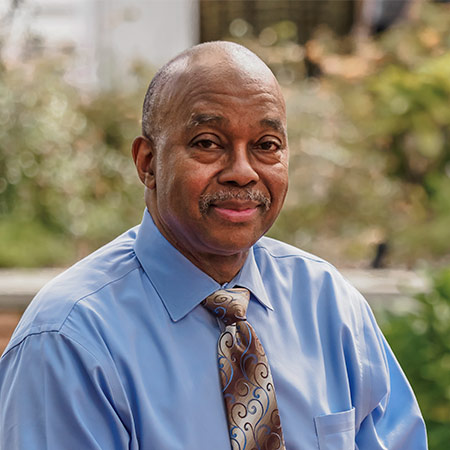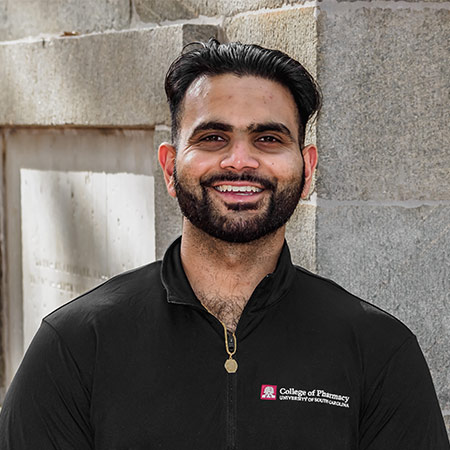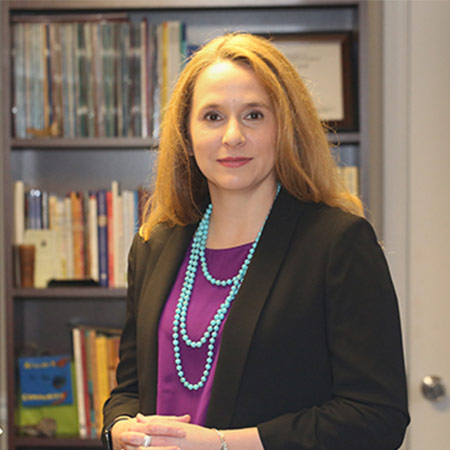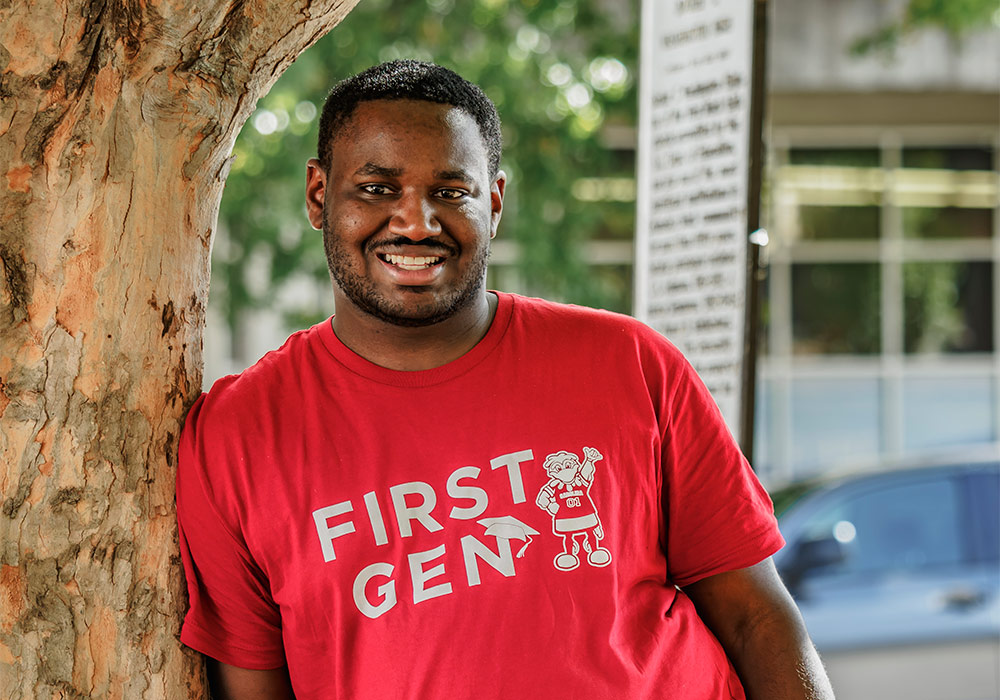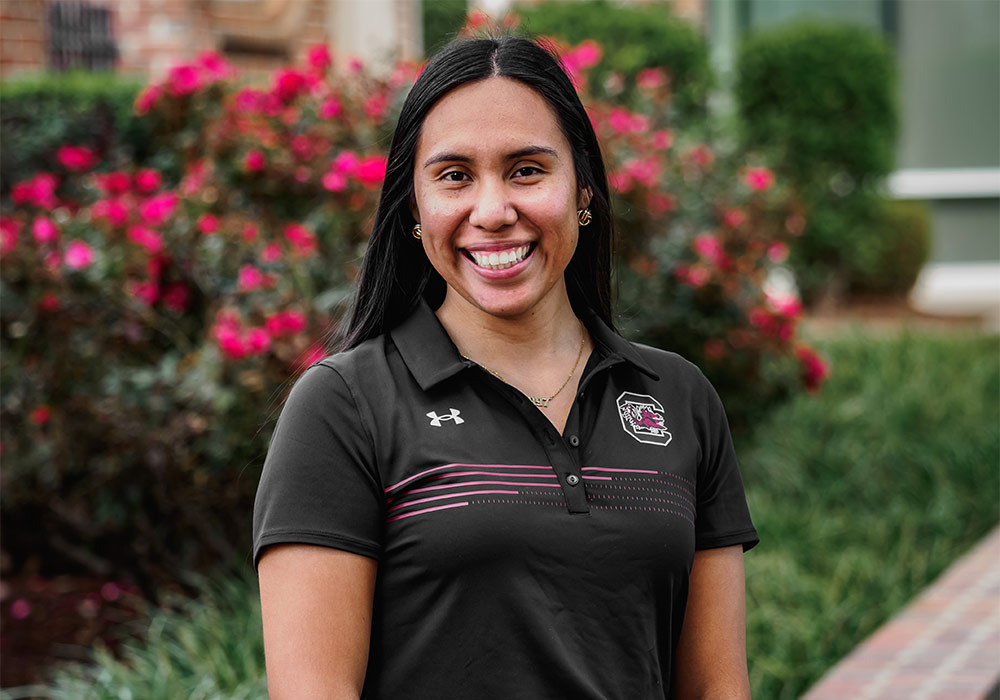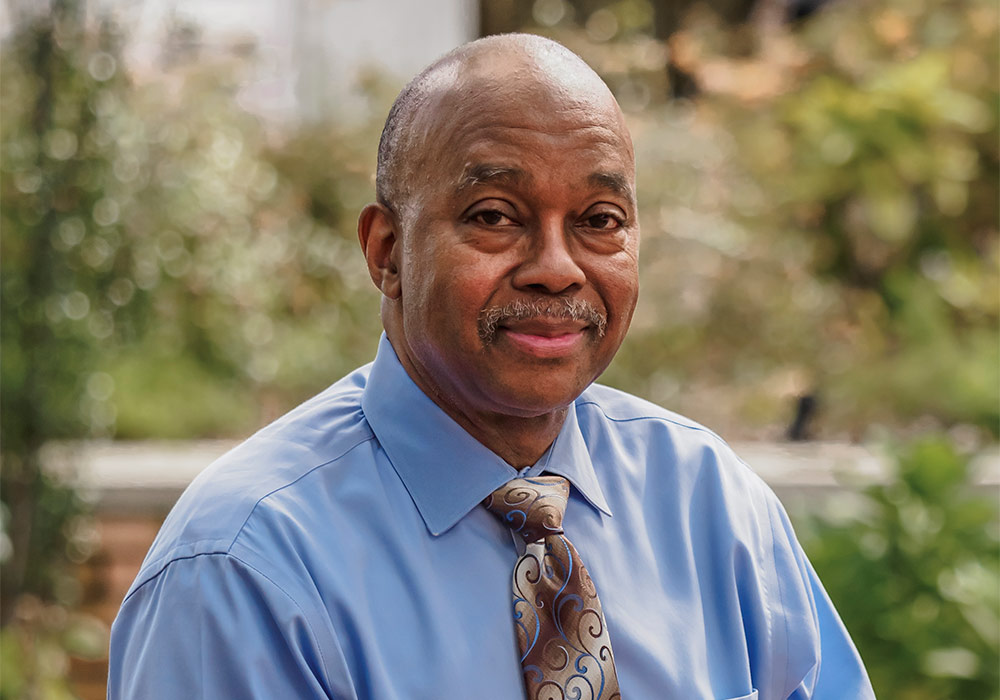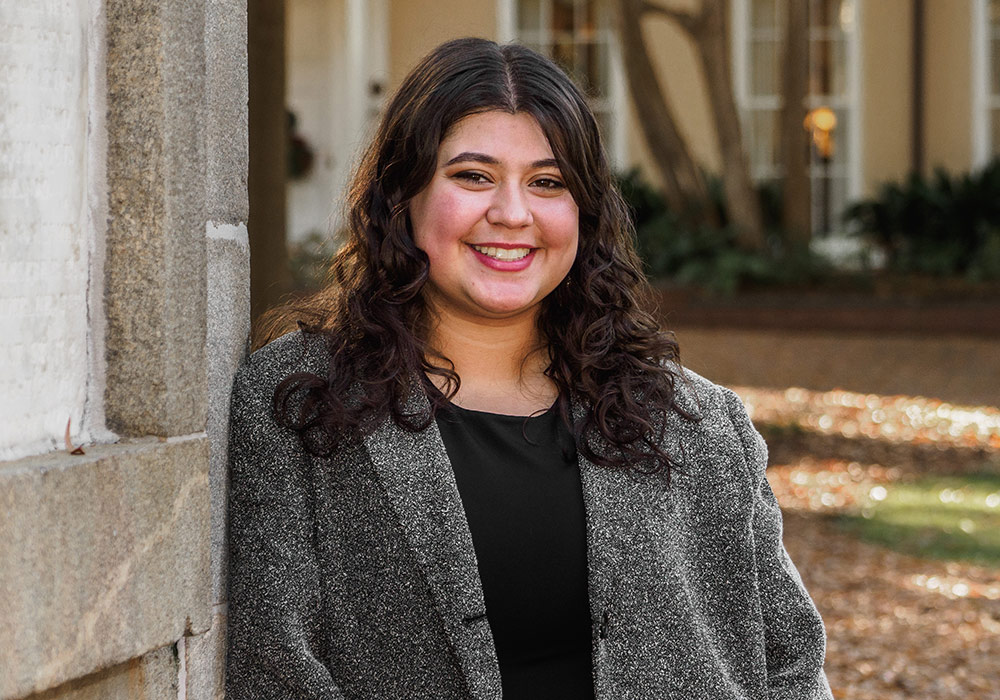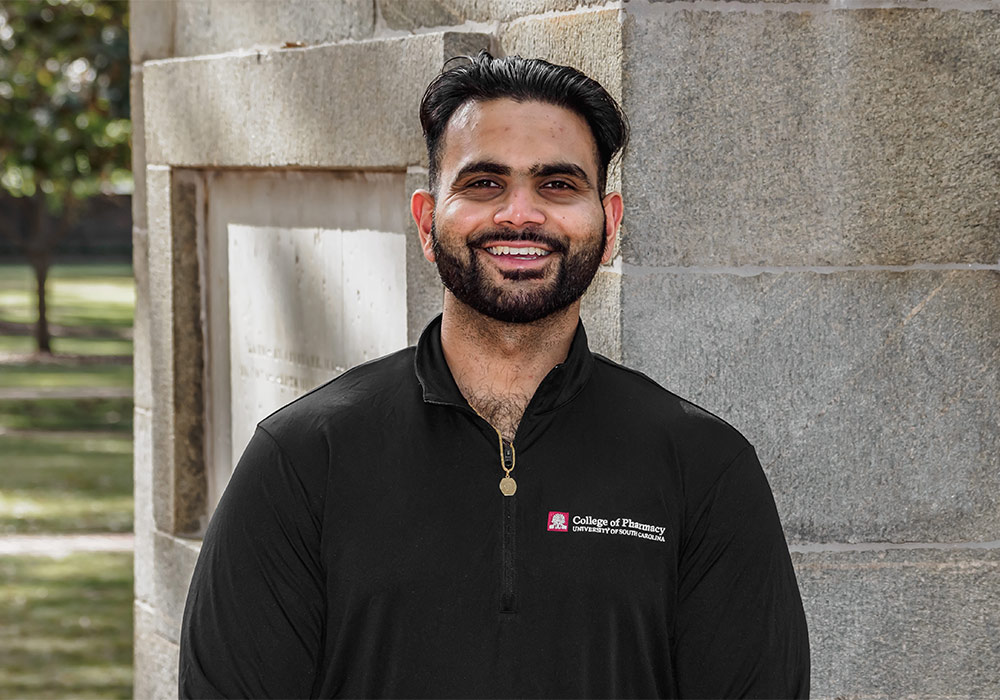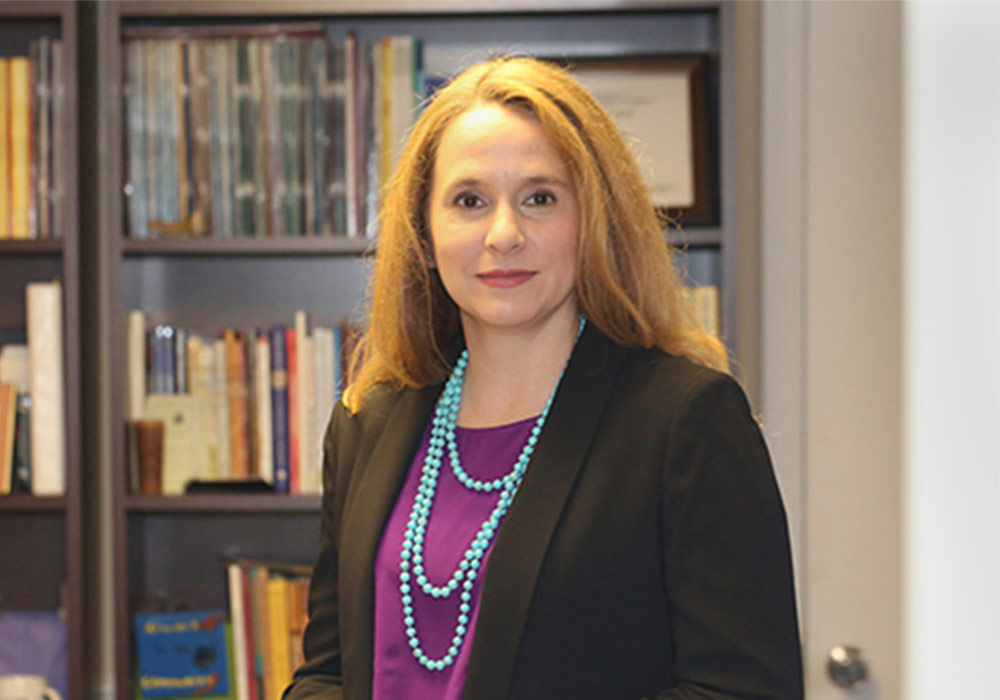A college dean who didn’t know what graduate school was when she arrived as a freshman at the University of South Carolina. An academic advisor who is the daughter of migrant farmworkers. A graduate student from rural South Carolina who wasn’t sure he belonged at the state’s flagship university.
First-generation college students come from all sorts of backgrounds and bring a variety of perspectives to campus. At USC, about one-fifth of the student population identifies as first-generation college students, meaning their parents did not earn a four-year college degree.
“It is important to note that USC-Columbia’s first-generation students meet regular admission requirements. They are intelligent, creative, resilient and hardworking,” says Althea Counts, director of the university’s TRIO programs — a network of programs and services that support low-income and first-generation college students. “Their unique skillset enriches the college environment.”
The university offers a full range of experiences, opportunities and resources to help first-generation college students be successful. USC is one of 349 institutions across the country recognized for its efforts by NASPA, Student Affairs Administrators in Higher Education’s Center for First-Generation Student Success.
USC will mark National First-Generation College Student Celebration Week Nov. 6-10 with a full schedule of events.
We caught up with first-gen students, staff members, faculty and alumni to offer a glimpse of these students’ stories.
Meet our first-gen students
Curtis Pernell had a rocky transition when he arrived at USC from Dillon, South Carolina — the first person in his family to graduate from high school.
“It was a culture shock for me getting to campus,” Pernell says. “As an African-American male and being first-gen, I didn't feel like I fit in on campus at first. I thought college wasn’t for me because I come from a small town on the Corridor of Shame on I-95. I didn’t feel like I belonged here.”
He thought about dropping out, but he instead went to talk with Althea Counts, the TRIO director, who offered some simple advice.
“She sat me down and told me I have to find my ‘why’ of being here,” he says.
For Pernell, that meant getting involved on campus and giving back through TRIO.
“I met people that came from similar backgrounds. So I felt like, OK, we’ve got the same story. I have my people here. I can belong. And I know people I can talk to if I’m having trouble or anything,” he says. “I became a student leader for TRIO. I was going around to different events and I started helping them plan the events. And then I became a mentor so I can help the incoming freshmen transition into USC.”
When he graduated in May 2023 with a degree in criminal justice, he decided to enroll in the higher education and student affairs master’s program, with his plan to eventually attend law school to earn a JD and social work degree. For now, he is the graduate assistant for the TRIO program, helping students adjust to college.
“I’m the first person they see once they come in. I love the fact I can mentor them and talk to them and help them transition,” he says. “I can tell them I was just in their shoes a couple years ago. So I understand their pain.”
His advice for the new students is exactly the same as what Counts told him: Don’t give up and find your “why.”
“And then once you find your why, be passionate about that,” Pernell says. “And if you need help, talk to somebody. There is somebody here who can help you.”
Elizabeth Gloria’s first-generation story starts a little earlier than most.
The academic advisor for the football and men’s golf teams is a first-generation American, born to migrant farm workers from Mexico who worked the harvest around the country. She’s also the oldest of five children, so she set the trail for her siblings, starting in kindergarten in Florida.
“I grew up in a whole different culture, a whole different lifestyle,” Gloria says. “So my first gen-story does start literally as early as 5 entering kindergarten. Having to learn a whole new language, having to learn new ways of doing stuff for me has been a lifelong process.”
Gloria’s parents, who don’t speak English and have the equivalent of an eighth- and ninth-grade education in Mexico, always pushed their children to get an education.
“That was the biggest reason why they came to the United States, to offer me and my siblings the American dream and the opportunity that they didn't have,” she says. “So from an early age, they were invested in my education, which I'm super grateful for because not everybody gets that, especially from the background that I'm coming from.”
When she was in high school in Florida, she took advantage of a program that offered children in migrant families the opportunity to tour colleges in the area. It’s when she says she realized, “college could be a thing for people who look like me.”
She decided on Florida State University, a long way from south central Florida where she grew up, through a program to help first-gen, low-income student transition into college. She majored in sports management with a minor in communications, a surprise for someone who grew up in a family with no interest in sports. “But I loved it from the first class that I took. I got involved in the sports management department and all those little things ended up leading into what I do now.”
She knew she wanted to work in athletics, but she also had a passion for higher education.
After earning her master’s in higher education at the University of Texas in Austin, where she worked as a graduate assistant helping first-gen students, she returned to Florida State for a post-master’s internship with the football team. In May 2022 she arrived at USC where she continues working as an academic advisor with student-athletes.
She makes sure the approximately 50 students assigned to her are taking the correct classes, making progress to their degrees and staying compliant with USC and NCAA regulations.
“We are constantly checking in with them, making sure that they have the support they need. For a lot of my students, it's their first time navigating being away from home. A lot of them are first-gen, too. So they're asking me, ‘What's FAFSA? Would I want to do this in the future? What’s the best major for me?’”
She is quick to let them know she, too, had these same questions just a few years ago. And she is able show them she is invested in their academic success.
“Being a first-gen is a huge part of my identity,” she says. “I'm super thankful that, in so many ways, I can continue to pour into those students who come from similar backgrounds as me. I know what it's like to have to navigate this all alone. And I think that in itself gives me the passion and the fire to do what I do.”
It was more than 50 years ago, but Nate Carnes still remembers the words from a 6th grade teacher.
“He said, ‘Carnes, you’ll never amount to anything. I don’t know why we waste time on people like you.’ ”
He has spent his life proving those words wrong.
An education professor at the University of South Carolina and interim director of the Center for Teaching Excellence, Carnes was the first member of his family to attend college.
He grew up in the small, predominantly white town of Troy, Ohio, and started working at 9 years old delivering newspapers. That was followed by a job working with Standardbred horses at the county fairgrounds, where he worked his way up over seven years to become a horse trainer. He went to school each day then to work and was able to contribute a little to his family’s income.
While he says he was never in trouble at school, he wasn’t sure what he wanted to do and felt he was in danger of falling behind. Luckily, he had other teachers who helped him along the way. “There were educators that caught me from falling through the cracks,” he says.
He also was supported by his parents and his church.
“My parents were very supportive. They had this mentality of ‘We want you to be better than what we have been; go where we haven't gone.’ That's the kind of parents I had. They made a huge difference in my life.”
He says his family was “very religious, very Christ-centered. And that still is my strength today. That helps me through no matter what I face. So church was a big piece as well.”
He ended up graduating with honors from Miami University of Ohio and pursued a career as a middle-level science teacher, with his first job back at his hometown school. He eventually earned two master’s degrees from Wright State University. When Miami University and Ohio State were awarded a grant to study math and science education, Carnes was hired to help communicate with math and science teachers across the state of Ohio. In the process, he earned his doctorate with a focus on science education.
He applied for university teaching jobs and landed at USC where he has taught in the College of Education since 1996. He was one of the faculty members that formed the university’s middle-level education program, and he helped transform a room in Wardlaw into a science education classroom. He also serves as the interim director of USC’s Center for Teaching Excellence.
“Teaching is more than getting up in front of students and talking at them,” Carnes says. “That's not necessarily teaching. How do you nurture learners? I think that successful first-gen people have the background, the experiences to mentor because they understand people at different levels. And that's true for any group. If you haven't gone through some experiences, then you can't understand why some people go through those things.”
Alejandra Ramirez knows how much her parents sacrificed for her — how much they value her education. It’s something she is thankful for every day.
Her parents immigrated to the U.S. from Colombia, South America, and Alejandra was born in New Jersey. The family moved to South Carolina for her father’s construction job when she was about 6 years old.
“Despite not having gone to college, my parents were very active in me having those building blocks so I would be able to go to a four-year institution and get my degree,” she says.
She attended public school magnet programs in Columbia and took honors and AP classes in high school. She was accepted at USC and earned generous scholarship offers and other opportunities through the TRIO program for first-generation students. But there were still costs she would be responsible to pay. Her parents offered to work to make up the difference — to pay for things like books and expenses.
“But I didn't really want to burden them with that type of thing. They had already done so much for me,” she says.
Instead, she talked to a family friend from church, a retired military officer, who suggested she investigate the Army National Guard as a way to gain experience and find financial assistance to pay for college.
So instead of being a freshman in fall 2019, she deferred her acceptance to USC and headed to basic training in Fort Sill, Oklahoma. From there, she went to Fort Sam Houston in San Antonio, Texas, where she received her Military Occupational Specialty as a behavioral health specialist. She helps psychiatrists, psychologists and social workers do intake assessments and keep track of active cases within the National Guard.
She arrived at USC the following fall and will finish in December with her degree in international studies and graduation with leadership distinction honors. Her military contract will end in 2025, and she hopes to attend law school and work as an international human rights lawyer.
She knows her parents are proud of her military and academic accomplishments, and she has a full appreciation of their sacrifices.
“I know it’s very hard for them to not see their family consistently and for them to give up so much for me to have this opportunity to be able to go to school, get a degree and pursue a career that will be beneficial to the community,” Ramirez says. “I'm making my dreams, but also their dreams, come true.”
Aman Singh was born in India, grew up in Orangeburg, South Carolina and now is a pharmaceutical sciences major in USC’s Honors College.
While he is a first-generation college student, he says he always expected he would go to college. He just needed to learn more about it. And he’s working to make sure the first-gen students who follow him at USC have the information and the confidence they need to succeed in the Honors College and beyond.
Singh is a resident assistant in the Honors residence hall, and this year he stepped into the newly created position as the first-gen support coordinator for the Honors College’s Peer Mentor Program. There are about 300 students in the program, with 30 to 40 of them first-generation students, he says.
“We have events to let them know more about specific things that they wouldn't know because they didn't have family members that went to college,” he says.
That includes topics like national fellowships, how to get involved in research and other beyond-the-classroom topics.
Singh became interested in a career in health care as a teen, and attended the High School for Health Professions, a public charter school in Orangeburg.
“It sounds very cliche, but I love helping people,” he says. “If you see people feel better or do better or just improve, that’s what gets me going. That’s like my motor.”
His father moved to the U.S. from India for a job as a quality inspector at a plant in Orangeburg soon after Aman was born. Aman and his mother joined him in 2010.
His parents did not attend college, but all his older cousins went to college in India.
“They all have grad school or some type of college education. So it was pretty much
standard that, ‘Hey, I'm going to go to college.’ ”
He is in his junior year at USC, and his first year of pharmacy school. He’s leaning toward the academia and research side of pharmacy.
“The experience has been really good. Since this is the premier research institute in the state, we get a lot of funding and there's a lot of opportunities to do things like beyond the classroom. And being in the Honors College I have access to honors grants and all the different internship and service learning opportunities.”
Sheri Hardee has three degrees from the University of South Carolina and is now the dean of the College of Education at the University of North Georgia. Not bad for a first-generation student from West Columbia who says she didn’t know what graduate school was when she arrived at USC.
As the first person in her family to go to college, she had to figure out the academic, social and financial side of it pretty much on her own.
“My dad had taken out one of those Parent Plus loans to pay for the first semester, but he told me, ‘We’re not going to be able to help you after this; you’ve got to figure it out,’ ” Hardee says. “So I got into TRIO. I feel like I would not have been successful in college had it not been for TRIO.”
Ruth Strickland, an English professor, got her a tutoring job in the TRIO lab so she could focus on school and quit the other three part-time jobs that helped pay her way through college. And she earned some scholarships from TRIO, too.
“Dr. Ruth Strickland challenged us to think critically. She helped keep me in college. And she was the one who encouraged me to think about graduate school,” Hardee says. “As a first-generation student, I was like, ‘Grad school? What’s that?’ ”
Hardee never made a grade lower than an A in college or graduate school. She earned her undergraduate and master’s degrees in English and thought she would pursue a career in publishing. But while she was in graduate school, she started teaching English 101. She liked it. She started working on her doctorate in the College of Education — one class at a time — while working as an academic advisor for the TRIO program at Midlands Tech. Then she was offered a fellowship while she earned her Ph.D at USC.
After graduation, she applied for a faculty position at Gainesville State College in Georgia. She got the job, and soon after, the college consolidated with another and became the University of North Georgia, which is home to 20,000 students at five campuses in a 30-county service region. She started as an assistant professor, moved up to associate dean responsible for assessment and accreditation. Now, in her 15th year at the university, she is the dean of the College of Education.
And she has advice for today’s first-gen students: “Find a mentor. And I know that's hard. I know that as a first-generation student, I was more reticent to speak up, to ask for help. I didn't want to be labeled as different from my peers,” she says. “Find that group that understands what you’re going through and where you feel safe asking questions. That network of support from TRIO is really helpful.”
And then, pass it on to the next generation of first-gen students.
“I think those of us who are first generation, it's almost like being in a fraternity or sorority. Many of us are where we are because somebody made a difference in our life. I've made it my goal to help students like myself who might be facing a different set of obstacles, or for whom college might be a strange experience, but it should be a wonderful experience at the same time.”

